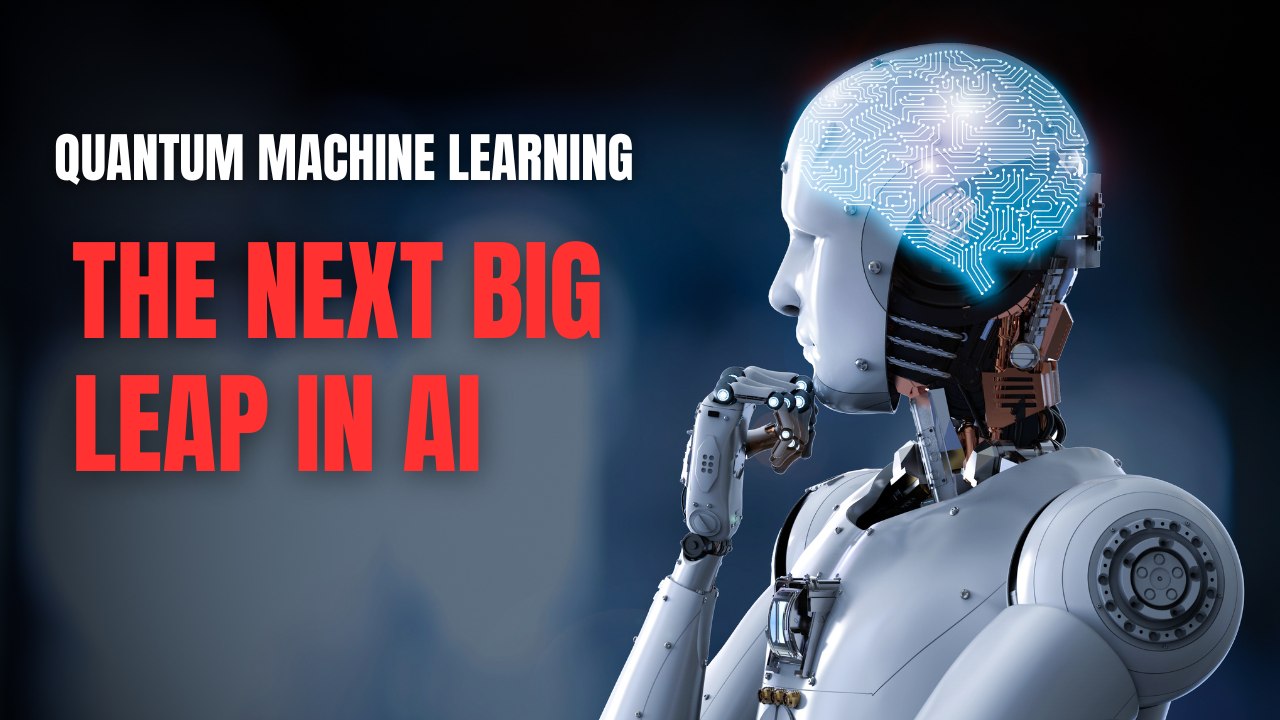Introduction
Machine learning has changed many parts of our lives from various technologies. However, as we stretch the limits of what machine learning can achieve, we encounter obstacles. Here comes quantum computing. This new area of technology might lead to a revolution in machine learning resulting in quicker stronger algorithms.
What is Quantum Machine Learning?
To learn QML, we need to know the basics of quantum computing. Classical computers use bits, which are 0s and 1s. Quantum computers use qubits. Qubits may be both 0 and 1. They can be entangled, which means the state of one qubit connects to the another state even when they are far away. These features allow quantum computers to handle huge amounts of data at once. This might let quantum computers solve problems faster than classical computers.
Why is Quantum Machine Learning Important?
Classical machine learning has reached a lot of success yet it has boundaries. For example, teaching complex models with big datasets can take a lot of time. Quantum computing provides a way to make this faster. With its capacity to do many calculations at the same time, a quantum computer could manage big datasets and complex algorithms better. This means faster training periods and the chance to solve issues that we cannot solve now.
How Does Quantum Machine Learning Work?
Quantum Machine Learning algorithms use quantum computing’s special traits to make ML tasks better. Picture trying to find the shortest way through a maze. A normal computer would test one way at a time, but a quantum computer can check many ways at once. QML algorithms such as Quantum Support Vector Machines and Quantum Neural Networks use this ability to process data faster and with more precision. For instance, a Quantum Neural Network may identify patterns in data faster than a standard one making it great for jobs like recognizing images and voices.
Real-World Applications of Quantum Machine Learning
Quantum Machine Learning is not just an idea; it is already in use in many areas. In finance, QML improves trading methods by looking at a lot of market data fast. In healthcare, it could change drug discovery by finding possible compounds from a big dataset. Cybersecurity gets help from QML with quicker and more exact threat finding. Companies like Google, IBM, and Microsoft, and research places all over the world, are working on QML projects. Big advancements include Google’s quantum supremacy experiment and IBM’s Quantum Experience platform.
Challenges and Future of Quantum Machine Learning
Despite its promise, QML encounters many obstacles. The present hardware for quantum computers is in its initial phases having few qubits and stability concerns. Creating and writing quantum algorithms need rare specialized abilities. Yet, progress is happening . With better quantum hardware and more researchers joining the field, we anticipate a lot of improvement. The future of QML looks bright, with the ability to cause a revolution in industries and tackle complex issues that are now unsolvable.
Conclusion
Quantum Machine Learning may transform artificial intelligence. Using quantum computing’s special capabilities, QML could surpass classical machine learning limits resulting in quicker stronger algorithms. The journey has just started, and the future seems very exciting. Keep watching for new progress in this innovative field.

Quantum Machine Learning: The Next Big Leap in AI
Quantum computing operates with qubits that can exist in multiple states at once, not just 0 or 1 like classical bits. This helps quantum computers process data more .
QML might surpass the limits of classical machine learning by managing intricate datasets and making training periods shorter resulting in stronger algorithms.
QML finds use in finance to optimize trading strategies, in healthcare to discover new drugs, and in cybersecurity to detect threats.
